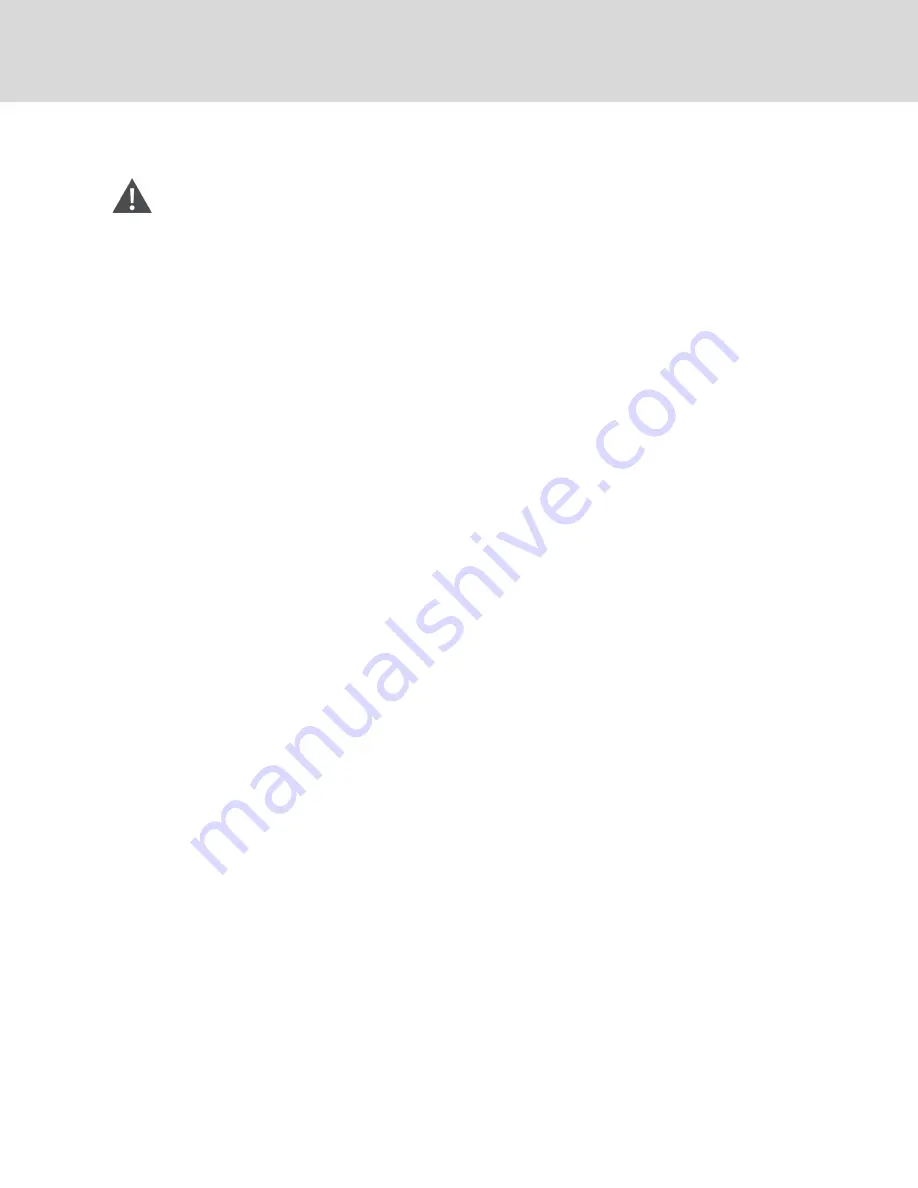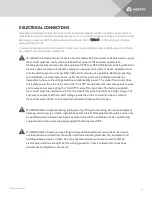
4.2 Chilled-water Loop Piping Guidelines
WARNING! Risk of improper piping installation, leak checking, fluid chemistry and fluid
maintenance can cause equipment damage and personal injury. Installation and service of this
equipment should be done only by qualified personnel who have been specially-trained in the
installation of air-conditioning equipment and who are wearing appropriate, OSHA-approved
PPE.
NOTICE
Risk of frozenpipes and corrosionfrom improper coolant mixture. Cancause water leaks resulting in
equipment and building damage.
Whenthe cooling unit or piping may be exposed to freezing temperatures, charge the system withthe proper
percentage of glycol and water for the coldest designambient temperature. Automotive antifreeze is
unacceptable and must NOTbe used inany glycol fluid system. Use only HVAC glycol solutionthat meets the
requirements of recommended industry practices. Do not use galvanized pipe.
NOTICE
Risk of piping-system corrosionand freezing fluids. Cancause leaks resulting inequipment and expensive
building damage. Cooling coils, heat exchangers and piping systems are at highrisk of freezing and premature
corrosion. Fluids inthese systems must containaninhibitor to prevent premature corrosion.
The system coolant fluid must be analyzed by a competent fluid-treatment specialist before start up to
establishthe inhibitor level and evaluated at regularly scheduled intervals throughout the life of the system to
determine the patternof inhibitor depletion. The fluid complexity and variations of required treatment
programs make it extremely important to obtainthe advice of a competent and experienced fluid-treatment
specialist and followa regularly scheduled coolant-fluid system-maintenance program.
Fluid chemistry varies greatly as do the required additives, called inhibitors, that reduce the corrosive effect of
the fluids onthe piping systems and components.
The chemistry of the coolant fluid used must be considered, because some sources may containcorrosive
elements that reduce the effectiveness of the inhibited formulation. Sediment deposits prevent the formationof
a protective oxide layer onthe inside of the coolant system components and piping. The coolant fluid must be
treated and circulating throughthe system continuously to prevent the buildup of deposits and/or growthof
bacteria. Proper inhibitor maintenance must be performed to prevent corrosionof the system.
Consult fluid manufacturer for testing and maintenance of inhibitors.
Commercial-grade coolant fluid is generally less corrosive to the commonmetals of constructionthanwater
itself. It will, however, assume the corrosivity of the coolant fluid from whichit is prepared and may become
increasingly corrosive withuse if not properly inhibited.
Vertiv recommends installing a monitored fluid-detectionsystem that is wired to activate the automatic-
closure of field-installed coolant-fluid supply and returnshut-off valves to reduce the amount of coolant-fluid
leakage and consequential equipment and building damage. The shut-off valves must be sized to close-off
against the maximum coolant-fluid system pressure incase of a catastrophic fluid leak.
Vertiv | Liebert® CW™Installer/User Guide
36
Summary of Contents for Liebert CW 038
Page 14: ...Vertiv Liebert CW Installer User Guide 14 Thispageintentionally left blank...
Page 22: ...Vertiv Liebert CW Installer User Guide 22 Thispageintentionally left blank...
Page 38: ...Vertiv Liebert CW Installer User Guide 38 Thispageintentionally left blank...
Page 80: ...Vertiv Liebert CW Installer User Guide 80 Thispageintentionally left blank...
Page 102: ...Vertiv Liebert CW Installer User Guide 102 Thispageintentionally left blank...
Page 108: ...Vertiv Liebert CW Installer User Guide 108 Thispageintentionally left blank...
















































